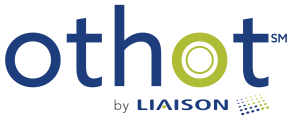Defining the Institutional Team for a Holistic Student Success Strategy

Brandi Phillips, Executive Consultant, Student Success Solutions, RNL
You’re watching a game of soccer—and it’s intense. The score is tied, and your favorite team has a chance to win. To determine an identified strategy, the Coach calls a timeout. The team huddles, and the Coach calls on the defensive and offensive captains to guide their players on implementing the game plan. The game resumes, one player passes to the next, they work together in tandem to execute the play. Each member of the team knows their role and they work together for their desired outcome.
And... the game is won!
To win in student success, your institution should have a Coach, captains, and team members working together to support their students’ persistence, progression, retention, completion, and graduation.
The “Coach” is the individual who takes on the responsibility for guiding retention efforts and managing data to share with the captains of their team. The “captains” utilize these results to prioritize interactions with students and work closely with the “team” to ensure they have the relevant data to affect the needs of students across their campus functions.
The Role of the Coach
The Coach(es) usually works within an Office of Student Success or department of a similar function.
One of the first questions a person in this role should be able to answer is, “what are our institution’s current outcomes and what are our goals”? This individual must have access to a variety of institutional data to determine and understand the needs of their organization. Then they can develop data-informed strategies regarding the next steps their institution should take to achieve realistic outcomes for student success.
The Role of the Captains
The captains are the key stakeholders that work closely with the coaches to develop a strong implementation plan that the team can carry out. They, too, must be data driven but, also, working so closely with the team gives them the advantage of knowing what it is like being in the trenches and working with students. This is often known as a Student Success Committee on campus.
The Role of the Team
The team is driven by both the coach and the captain. They are the individuals actually implementing and working closely with students. If properly implemented, these teams will be made up of those individuals from different divisions, including financial aid, career development, residence life, and everywhere else on campus.
In order to pursue a holistic perspective on team-building for student success, the following points are critical:
- Identify institutional goals and priorities: Let your data tell the story. Know where you are today (key performance indicators – persistence, progression, retention, completion/graduation) and where you want to be. Develop realistic short- and long-term goals. Utilize your Office of Institutional Research and Effectiveness as a strategic partner in this process.
- Determine the key players: To move from data to action, you will need the support of your captains (committee). These can be roles such as Data Analysts (work closely with data) and Success Coaches (work closely with students and campus liaisons). Create a committee that works in support of your student success goals. As liaisons, they can share critical information with the committee and their departments to impact student success. We suggest pulling in players from the following departments, including, but not limited to:
-
-
- Admissions/Office of Enrollment Management
- Financial Aid
- Academic Enrichment/Office of Teaching and Learning
- Career Development
- Diversity and Inclusion
- Orientation
- Office of Student Engagement
- Athletics
- Res Life
- Dean of Students
- Wellness/Counseling Services
-
-
- Developing a Game Plan for Success: Your team includes players whose goal is to communicate with, support, coach, and guide students on to their potential. With the help of institutional and motivational data, they should be aware of the strengths and challenges of your student cohort, as a whole, and at the individual student level. Working directly with students allows them to gather additional data at the student level (to inform student success goals) and utilize the resources (i.e., advising, career guidance, academic support, counseling services, etc.) available within their specific departments to address students’ academic and non-academic concerns.
- Winning is a Team Effort: It may sound cliché, but, truly, the work of student success is everyone’s business. The roles of the staff member leading student success efforts, the committee members, and those working directly with students are intertwined. Using the data to guide you, and with your committee’s help, you can develop/increase communication with key partners throughout the institution and evaluate and continue monitoring your progress towards goals (term-to-term, year-to-year). But it doesn’t stop there. Each person at the institution needs a ‘student-minded’ focus. Encouraging this way of thinking requires ‘top down’ dedication to dismantling silos and gaining support from across the institution.
Read the other posts in the series to learn how the tools of the past need to be different for the future and how to prepare for your student success strategies for the next decade.
This is the last post in our three-part student success blog series.
Our goal was to offer some insights into how to create a successful student success organization on your campus, using a holistic data-informed approach.
We’ve enjoyed collaborating on these posts and on creating our joint solution that combines RNL’s motivational assessments and Othot’s AI-powered solution to inform student success leaders which students are at risk and what is needed to help them on their path to graduation.
ICYMI: Our on-demand webinar, Translating Insights into Action for Student Success, shows the solution in action.
If you have questions about the posts or would like to learn how the joint RNL and Othot solution can support student success on your campus, contact us at othotteam@othot.com.
We invite you to check us out:

Brandi Phillips, Executive Consultant, Student Success Solutions, RNL



